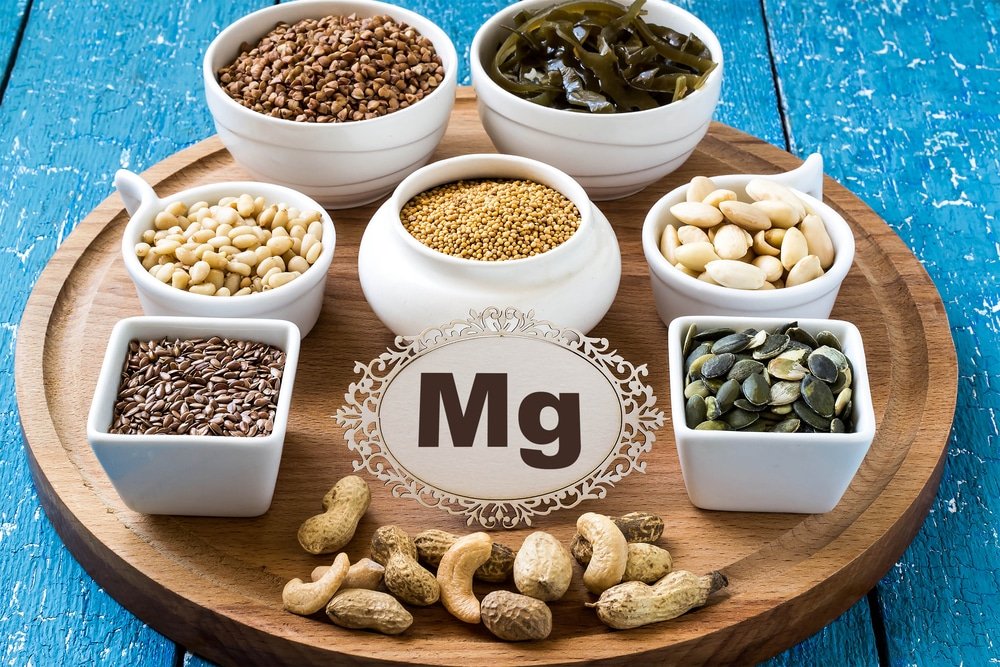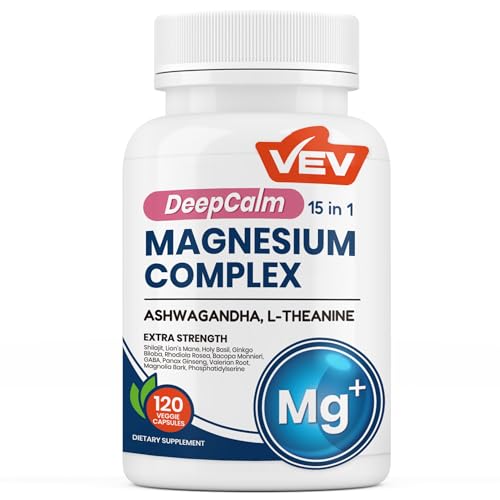Imagine a single mineral capable of improving sleep, reducing stress, and alleviating menstrual cramps. Magnesium, often called the “miracle mineral,” plays a crucial role in women’s health, influencing everything from bone strength to hormonal balance. Despite its importance, many women unknowingly suffer from magnesium deficiency, which can lead to fatigue, mood swings, and muscle cramps.
Magnesium is essential for over 300 enzymatic reactions in the body, including nerve function, blood sugar regulation, and energy production. For women, it becomes even more critical due to its impact on hormonal health, cardiovascular function, and mental well-being. Let’s explore what magnesium is, its top food sources, nutritional value, and the numerous benefits it offers for women’s health.
What Is Magnesium?

Importance of Magnesium for Women
Magnesium is an essential mineral found naturally in foods, added to fortified products, and available as a dietary supplement. It plays a key role in muscle relaxation, energy production, and DNA synthesis. For women, magnesium is particularly important in managing menstrual health, bone strength, and pregnancy wellness.
Research suggests that women may have a higher need for magnesium due to hormonal fluctuations throughout life, including pregnancy, menopause, and the menstrual cycle. Magnesium deficiency is linked to migraines, osteoporosis, PMS symptoms, and anxiety, making it vital to ensure adequate intake from food or supplements.
Top Food Sources of Magnesium
Eating a balanced diet with magnesium-rich foods is the best way to maintain optimal levels. Here are some of the top sources:
- Leafy Greens: Spinach, kale, and Swiss chard.
- Nuts and Seeds: Almonds, cashews, sunflower seeds, and pumpkin seeds.
- Legumes: Black beans, chickpeas, lentils, and edamame.
- Whole Grains: Brown rice, quinoa, whole wheat, and oats.
- Fruits and Vegetables: Bananas, avocados, potatoes, and carrots.
- Dark Chocolate: High-quality dark chocolate (70-85% cacao) is a delicious magnesium source.
Nutritional Value of Magnesium-Rich Foods
Here’s a breakdown of magnesium content in some common foods:
| Food | Serving Size | Magnesium Content (mg) |
|---|---|---|
| Pumpkin Seeds | 1 ounce (28g) | 156 |
| Almonds | 1 ounce (28g) | 80 |
| Spinach (cooked) | 1 cup | 157 |
| Black Beans (cooked) | 1 cup | 120 |
| Dark Chocolate (70-85%) | 1 ounce (28g) | 65 |
These foods not only provide magnesium but also contain fiber, antioxidants, and essential vitamins that further support overall health.
Five Key Benefits of Magnesium for Women
1. Alleviates Premenstrual Syndrome (PMS) Symptoms
Many women experience bloating, mood swings, fatigue, and cramps before or during their menstrual cycle. Magnesium has been shown to reduce PMS symptoms by regulating neurotransmitters that affect mood and helping muscles relax. Studies suggest that women who consume adequate magnesium have fewer cramps, less irritability, and reduced fluid retention.



Magnesium also plays a role in reducing prostaglandins, compounds that contribute to menstrual pain. By relaxing the uterine muscles, magnesium helps ease cramping and discomfort. Supplementing with magnesium or eating magnesium-rich foods can significantly improve menstrual health and overall well-being.
2. Supports Bone Health
Bone health is a major concern for women, especially as they age. Magnesium is essential for bone formation, as it helps activate vitamin D, which enhances calcium absorption. Without enough magnesium, bones may become weaker and more prone to fractures, increasing the risk of osteoporosis.
Postmenopausal women are at a higher risk of bone loss and fractures due to declining estrogen levels. Studies show that adequate magnesium intake is linked to higher bone density and a lower risk of osteoporosis. Ensuring sufficient magnesium intake through diet or supplements can help maintain strong, healthy bones throughout life.
3. Reduces Migraine Frequency and Intensity
Women are three times more likely than men to suffer from migraines, often due to hormonal fluctuations. Magnesium has been found to reduce migraine frequency, severity, and duration by relaxing blood vessels and preventing the constrictions that lead to headaches.
Studies have shown that magnesium supplementation can help women who experience menstrual-related migraines. By lowering inflammation and regulating serotonin levels, magnesium helps prevent migraine attacks and reduce pain intensity, offering a natural alternative to pharmaceutical treatments.
4. Enhances Sleep Quality
Many women experience difficulty falling asleep or staying asleep, especially during menopause. Magnesium helps regulate the nervous system and promote relaxation, making it a natural remedy for insomnia and poor sleep quality. It interacts with GABA receptors, the neurotransmitters responsible for calming the brain and reducing stress.
Low magnesium levels are linked to restless sleep, nighttime awakenings, and early morning waking. Increasing magnesium intake can improve sleep duration and quality, helping women feel more refreshed and energized. For those struggling with chronic fatigue or sleep disorders, magnesium can be an effective and natural solution.
5. Manages Stress and Anxiety
Mental health is a growing concern for women, as anxiety and stress levels continue to rise. Magnesium plays a key role in reducing stress and anxiety by regulating the hypothalamic-pituitary-adrenal (HPA) axis, which controls the body’s stress response.
Low magnesium levels have been linked to increased cortisol (the stress hormone), mood swings, and heightened anxiety. By stabilizing brain function and promoting relaxation, magnesium can help improve mood, reduce nervous tension, and enhance emotional well-being.
Possible Cautions
While magnesium is safe for most people, excessive intake—especially from supplements—can lead to side effects such as diarrhea, nausea, and abdominal cramping. The body regulates magnesium levels naturally through the kidneys, but individuals with kidney disorders should consult a healthcare provider before taking supplements.
Certain medications, including diuretics, antibiotics, and osteoporosis drugs, may interact with magnesium, affecting absorption. Women who are pregnant, breastfeeding, or managing chronic conditions should discuss magnesium intake with a doctor before starting supplementation.
Conclusion
Magnesium is an essential mineral that offers numerous health benefits for women, from reducing PMS symptoms and strengthening bones to improving sleep and relieving stress. Despite its importance, many women do not consume enough magnesium, leading to potential deficiencies and health concerns.
Incorporating magnesium-rich foods like nuts, seeds, leafy greens, and whole grains into the diet can help maintain optimal levels. However, supplementation may be necessary for those with deficiencies or higher needs. As with any supplement, it’s best to consult a healthcare provider before making changes to your diet or supplement routine.
Ensuring adequate magnesium intake is a simple yet powerful way to support long-term health, hormonal balance, and overall well-being. Whether through diet or supplementation, magnesium can be a natural tool for improving women’s health at every stage of life.



Join the 7‑Day “Better Gut” Plan
Pop in your email and we’ll send Lesson 1 + the printable list.











